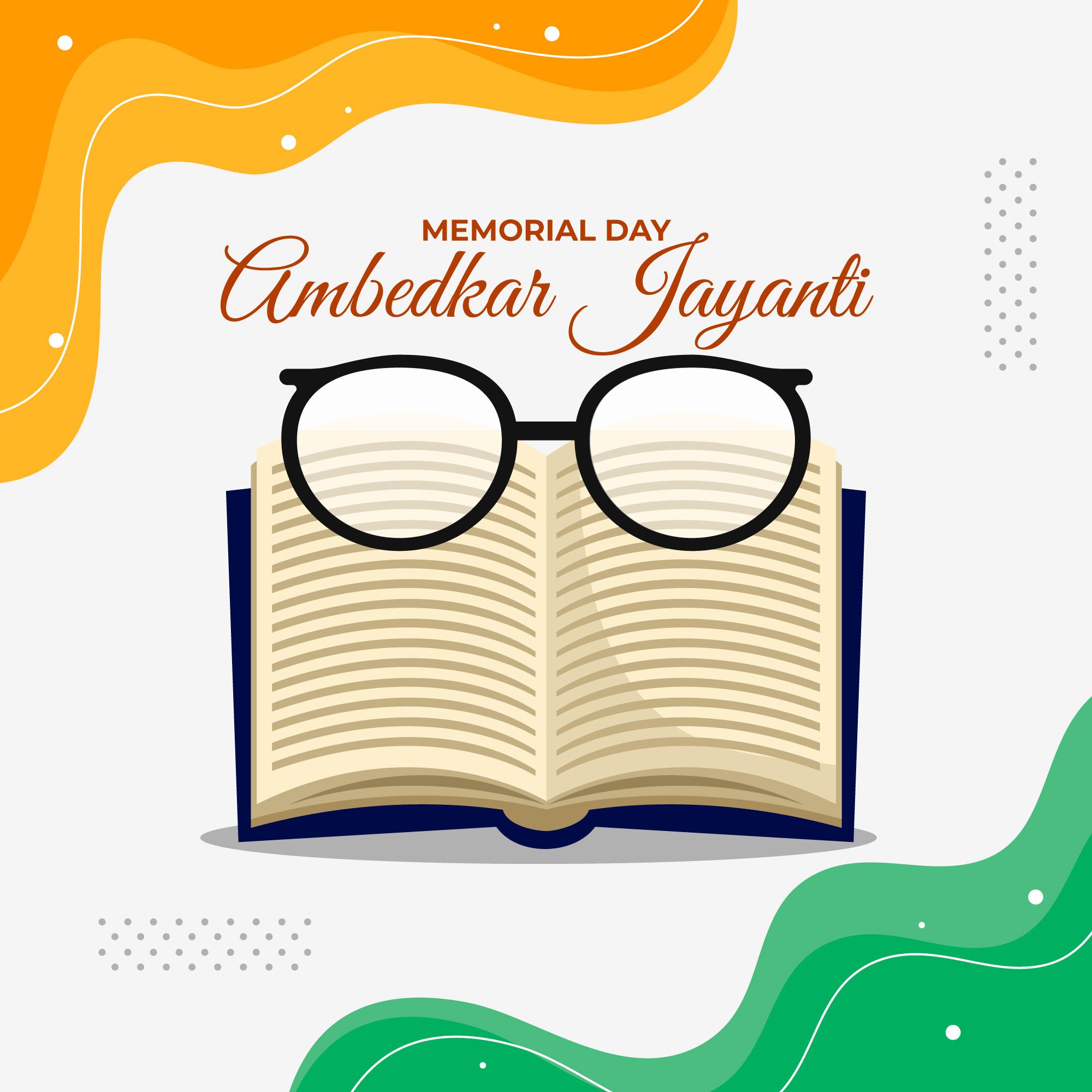Dr. Babasaheb Ambedkar was born on April 14, 1891, in the town of Mhow in the present-day state of Madhya Pradesh, India. He was born into a humble Mahar family, which was considered “untouchable” under the Hindu caste system. Ambedkar faced discrimination and segregation from a young age due to his caste status, and his experiences of social injustice deeply influenced his life and work. He is a well-known Indian social reformer, jurist, economist, and politician who is also regarded as the father of the Indian Constitution.
Dr. Babasaheb Ambedkar faced discrimination and exclusion as a child because of his caste status. He was not allowed to sit with other students in his school and was often forced to sit outside the classroom or clean the toilets. He was also restricted from drinking water from the same place as other students and had to walk a long distance to fetch water from a well.
B. R. Ambedkar’s Education
Dr. Babasaheb Ambedkar was a bright student and excelled academically despite all obstacles. His father worked as an army officer and Ambedkar was fortunate to have his support to be able to attend school. B. R. Ambedkar’s education was faced with many challenges as he was the only Dalit student in his class. Ambedkar was sent to study at the Elphinstone High School in Bombay (now Mumbai) at the age of 14 years. This is where it all started and was a significant moment in his life as it was the start of his journey towards higher education and social reform. He eventually achieved multiple degrees in economics and law from universities not only in India but also a PhD from Columbia University in New York City. B. R. Ambedkar’s education and knowledge were used to fight for the rights of India’s suppressed communities, including Dalits, women, and workers. He committed his life to staying focused on fighting against the ill-treatment and injustice that he was put through in his childhood. His childhood experiences had a deep impact and influenced his work as a social reformer to fight for the rights of Dalits and other ignored lower communities in India.
In 1932, the British government organized Round Table Conferences to discuss the future of India’s governance. Ambedkar played an important role in influencing many decisions at these conferences. decision-making. He asked for separate electorates for Dalits, that would allow them to vote for their own representatives instead of being forced to vote for other caste leaders. This demand was eventually granted as part of the Government of India Act 1935.
India gained independence from British rule in 1947 and Ambedkar became a member of the Constituent Assembly, which had to draft a new constitution for independent India. He was appointed as the chairman of the drafting committee and played a significant role in moulding the constitution’s allocations on equality and social justice.
Throughout his life, Ambedkar worked tirelessly to challenge caste-based discrimination and inequality in Indian society. He also founded the Bharatiya Bauddha Mahasabha, a social and religious organization for Buddhists in India. In 1956, he converted to Buddhism along with thousands of his followers, as he believed that Buddhism offered a path to equality and liberation from the caste system. His legacy lives on through his writings, speeches, and the institutions that he established to promote social justice and equality in India.
Dr. Babasaheb Ambedkar’s work spanned multiple areas, including social reform, law, economics, and politics. Here are some details about his major contributions:
- Social Reform: Ambedkar dedicated much of his life to fighting against caste-based discrimination and social inequality in India. He founded the Bahishkrit Hitakarini Sabha in 1924 to work for the welfare of the “untouchable” communities. In 1930, he led the Satyagraha movement, a peaceful protest against the British government’s decision to segregate Dalits from the rest of society. Ambedkar also worked to promote education and economic opportunities for Dalits, including through the establishment of schools and other educational institutions.
- Law: Ambedkar was a trained lawyer and served as India’s first Law Minister after independence. He played a key role in drafting India’s Constitution, which is known for its emphasis on equality, democracy, and social justice. Ambedkar’s contributions to the Constitution included the provisions for the right to equality, freedom of speech, and the abolition of untouchability.
- Economics: Ambedkar was also a trained economist and made significant contributions to the field of economics. He wrote extensively on poverty, land reform, and economic planning issues, and was a strong advocate for a mixed economy that combined private enterprise with state intervention. Ambedkar’s ideas on economics have been influential in shaping India’s economic policies over the years.
- Politics: Ambedkar was a prominent political leader and played a key role in the Indian independence movement. He was a member of the Indian National Congress but later formed his own political party, the Scheduled Castes Federation, to represent the interests of Dalits. Ambedkar also served as a member of India’s first cabinet after independence, focusing on social justice and economic development issues.
Dr. Babasaheb Ambedkar’s work was focused on promoting equality, social justice, and the welfare of marginalized communities in India. In the history of Dr. B. R. Ambedkar, his contributions have profoundly impacted Indian society and continue to inspire social and political movements today.
At EuroSchool, we focus on teaching the kids about influential historians like the history of Dr. B. R. Ambedkar so they get inspired by their lives.
EuroSchool sets the benchmark for kindergarten education with its commitment to nurturing young minds. Renowned for fostering a supportive and enriching environment, EuroSchool, a kindergarten school stands as a top choice for parents seeking quality early education. Choosing EuroSchool ensures a solid foundation for a child’s educational journey.










